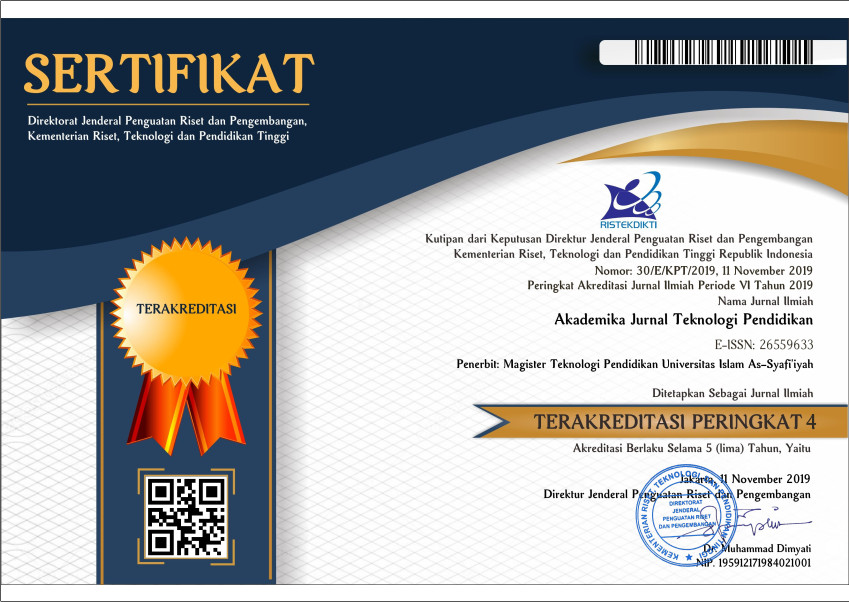ENGAGING YOUNG LEARNERS IN LEARNING VOCABULARY: A STUDY ON LEARNERS’ PERCEPTION
Abstract
This study examines students’ perception on the implementation of mobile games to engage young learners in learning English vocabulary. Thirty young learners in Islamic elementary school MI As-Syahid, Bekasi were the participant of the study. This qualitative study applied observation, survey, and interview. The findings revealed that: 1) young learners perceived that educational mobile games are effective in improving students’ activeness in learning and boost their motivation to learn vocabulary. 2) Young learners expand their vocabulary knowledge through mobile games, and.3) Learners have positive attitudes towards the use of educational mobile games as a supplementary medium of English learning. Additionally, mobile games can also be a potential tool to stimulate the motivation of children who experience failure in learning. This study contributes to the literature regarding vocabulary learning media and the use of mobile game in Indonesia. It highlights young learners’ perception of learning using mobile games.
This work is licensed under a Creative Commons Attribution 4.0 International License.
Authors who publish with this journal agree to the following terms:
- Authors retain copyright and grant the journal right of first publication with the work simultaneously licensed under a Creative Commons Attribution License that allows others to share the work with an acknowledgement of the work's authorship and initial publication in this journal.
- Authors are able to enter into separate, additional contractual arrangements for the non-exclusive distribution of the journal's published version of the work (e.g., post it to an institutional repository or publish it in a book), with an acknowledgement of its initial publication in this journal.
- Authors are permitted and encouraged to post their work online (e.g., in institutional repositories or on their website) prior to and during the submission process, as it can lead to productive exchanges, as well as earlier and greater citation of published work (See The Effect of Open Access).









